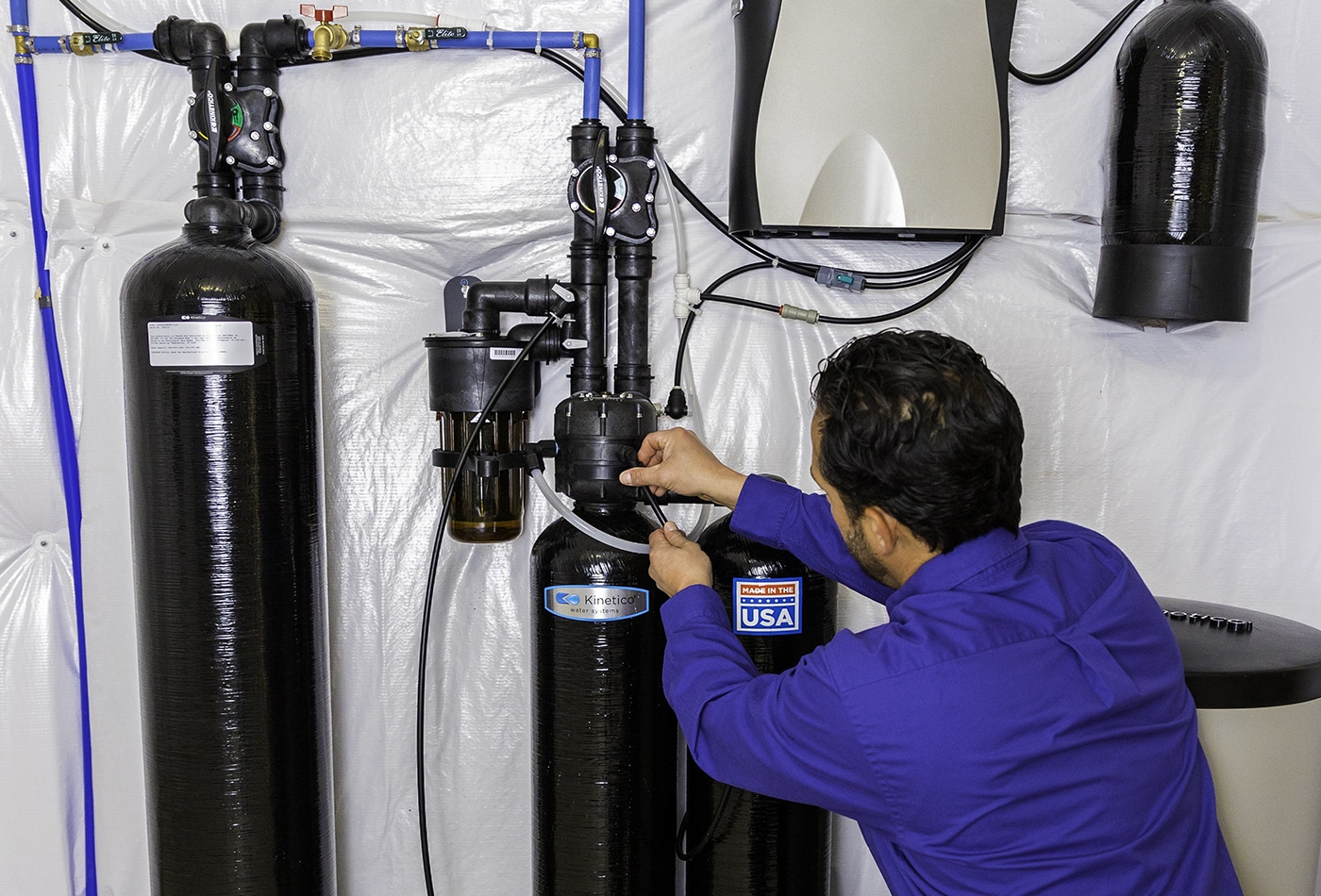Table Of Content

Customers suggest using silicone grease when installing new filters to get a tight fit and prevent any leaks. If your main concern is scale build-up, both salt-based and salt-free water softeners will prevent hard minerals from sticking to your pipes and appliances. If, however, your intention is to completely eliminate hard water, a salt-based water softener will be best. This is the best way to know how much salt the softener needs to reach its maximum capacity. For example, if a water softener has a grain capacity of 32,000 and an efficiency of 4,800, it means that for every pound of salt, it removes 4,800 grains of water hardness.
Reasons to Get a Whole House Water Filter System
The best water softeners in 2024: A simple way to prevent limescale build-up - Expert Reviews
The best water softeners in 2024: A simple way to prevent limescale build-up.
Posted: Tue, 02 Jan 2024 08:00:00 GMT [source]
Each type of hard water treatment system has its own unique benefits, and when you understand the differences between them, you might just find that one system is particularly ideal for your needs. However, before installing a water softener in your home, it's important to understand how water softeners work and the various types available. We'll break down the key differences between each softener to help you decide which type is appropriate for your needs.

Is it worth getting a water softener installed?
One of the most unique features of the GE GXSH40V is its blending valve, which allows you to adjust the hardness of your water to match your needs. Using the digital controller, you can adjust water hardness levels, conserving salt usage or increasing water softness to suit your preference. "Smart" and "efficient" are two ways to describe the functionality of this popular whole-house water softener.
The 10 Best Whole House Water Filter Systems of 2024
While salt-based systems are popular, they’re definitely not for everyone for the reasons we laid out above. This softener, however, rids your water of minerals without using any salt. It uses a 5 micron (very fine) sediment filter to take out the larger, harmful minerals while letting smaller beneficial ones fall through.
There is a wide range of water softeners to peruse and you are more than guaranteed to find the best solution for your household. All you need is some fundamental knowledge on how to choose a water softener to narrow down your search. If you have answered the questions above, you are more than ready to find your perfect water softening solution. Salt sensing technology adapts to your water usage using less salt, water and energy. Features quick and quiet regeneration plus power loss protection to save your settings.
It then passes by a water conditioner that helps prevent hard minerals build-up by crystallizing them. In the third stage, a copper-zinc and mineral stone reduces chlorine, heavy metals, bacteria and algae. Finally, in the last two stages, an activated carbon filter and a post-filter help reduce chemicals like pesticides and herbicides, alongside sediment leftovers and organic particles.
Electronic descalers are the final water conditioning option to consider. Again, these units don’t technically “soften” your water, and they don’t use salt, resin, or even a tank. For that reason, systems with excellent flow rates for their level of filtration were awarded higher points in this crucial category. NSF certification ensures that your water filtration system meets rigorous safety and construction standards. An NSF-approved system has been tested to ensure that it removes the contaminants it claims to, and won’t allow specific pollutants to pass through. SoftPro’s water filter will remove 99% of contaminants along with many other impurities using its catalytic carbon filter, which also eliminates minute metal materials and chloramine.
Reviews in Reviews
Water softeners can help by removing these minerals before the water comes out of your tap. Even if your city and state allow for salt using water softeners, you may want to find a more environmentally friendly option. You use it the same way you would salt in the same type of water softener.
Your grains per gallon is an indication of the concentration of calcium and magnesium minerals in your water. A whole house water filter needs to be installed near your water main shutoff, which is typically in the basement or a utility closet. However, the reason isn’t often because the plumbing is more complex, but correctly setting up the filtration requires additional system knowledge.
Here are answers to some of the most frequently asked questions about water softeners. After installing a water softener, its salt levels should be checked every 4 to 6 weeks. If the salt level drops, then hard water will begin to return to the home’s water system. If it’s going to be used for these purposes, the bypass valve will divert the flow of water around the softener and back into the pipes. Once complete, the bypass valve can be closed, restoring the flow of water through the softener.
Filter changes and maintenance determine the overall convenience and affordability of a whole house filtration system. Filter lifespans were evaluated against their level of filtration and the average number of months it will last with regular use. As a general rule, the finer the filter media, the more often you’ll need to swap filters for a fresh one. For instance, a five-micron filter will need replacement more often than a 20-micron one.
Most plumbers charge around $200 for standard water softener installation. Many water softeners can be installed by the homeowner – but you have to be pretty competent at DIY to consider installing a softener yourself. Reading customer reviews will give you a good idea of how a softening system performs in reality. You can also read impartial reviews written by experts, like the reviews found on WaterFilterGuru. We have extensive information about the best water softening systems for all manner of uses and purposes.

No comments:
Post a Comment